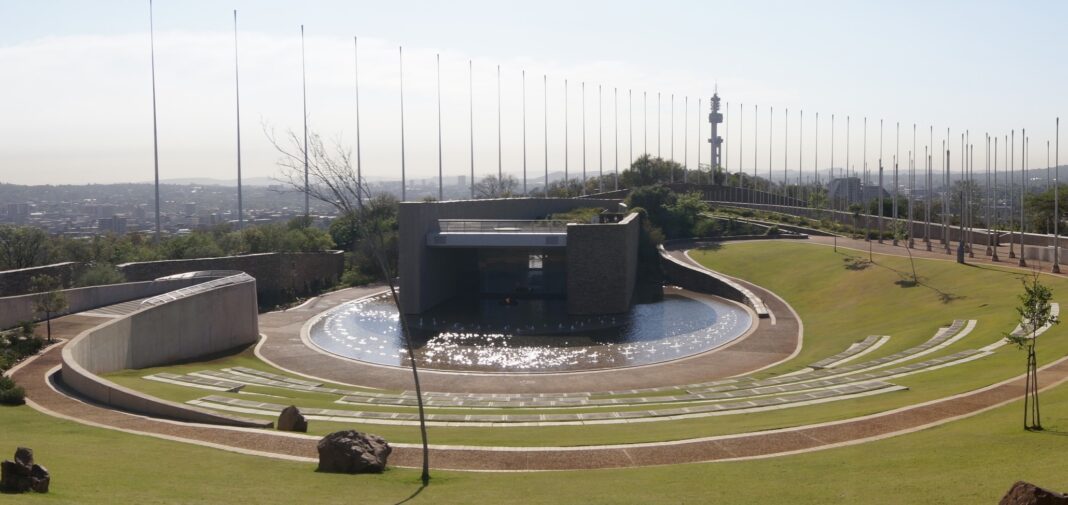By Johnathan Paoli
President Cyril Ramaphosa has welcomed the return of the remains of the country’s struggle stalwarts from exile, marking a significant moment in the nation’s ongoing reconciliation and remembrance efforts.
Ramaphosa said the act of repatriation not only restored their citizenship, but also reunited them with the land of their birth and their families.
“Today we celebrate the return to our soil of the heroes and heroines of our struggle for freedom,” Ramaphosa said.
He delivered the keynote address at a ceremony marked by reverence and reflection, in which the remains of 42 former liberation fighters were officially welcomed home following their repatriation.
It was held at Freedom Park Heritage Site and Museum in Pretoria on Friday.
He said the ceremony came decades after these fighters left a country engulfed in the turmoil of apartheid, which was condemned worldwide as a crime against humanity.
The president expressed regret that they did not live to see the democracy for which they fought tirelessly.
“It is fitting that we gather at Freedom Park where we remember our struggle for liberation and the many who fought for our freedom,” he said.
He highlighted the importance of honouring the diverse political traditions of the freedom fighters, all united by a common vision for a liberated South Africa.
“Their activism continues to inspire our efforts to build a better life for all,” he said.
Ramaphosa extended gratitude to the countries of Zambia and Zimbabwe for their hospitality and care of South African freedom fighters during their years in exile.
He emphasised the need for collaborative efforts to promote the memorialisation of shared struggles, education and cultural exchanges between nations.
The ceremony aligned with broader commitments to preserve South Africa’s liberation heritage, including Unesco’s declaration of human rights, liberation and reconciliation sites in the country.
“We must work with education and heritage stakeholders to ensure that the names and contributions of these African freedom fighters are known and appreciated by future generations,” the president said.
Ramaphosa highlighted the Exile Repatriation Project as a continuing effort to honour those who fought for freedom, with plans to return the remains of more freedom fighters in the future.
He named notable figures whose contributions were celebrated, including Duma Nokwe, John Nyathi Pokela and Florence Mophosho.
In closing, Ramaphosa called on all South Africans to honour the memories of these heroes by working diligently to create a society where all individuals enjoy freedom and equality.
“We must build a South Africa in which all people are free and equal, and combat poverty, violence, and division,” he said
The president led a wreath-laying ceremony at the Wall of Names in honour of the freedom fighters who lost their lives in Zambia and Zimbabwe.
The memorial is inscribed with the names of those who fought for humanity and freedom throughout South Africa’s turbulent history, including conflicts from pre-colonial times through the struggle against apartheid.
Speaking ahead of the address, Zambian High Commissioner Mazuba Monze pleaded for stronger relations between the two countries following the repatriation.
He said the relationship should be strengthened towards development, trade, education and culture.
“We remember with respect, those who found their resting place in Zambia. Their graves will continue being sacred symbols of our shared history, and a testament to the deep bond between our peoples,” Monze said.
As the remains of these valiant fighters have been brought home, many have praised the country for taking a significant step in recognizing the legacy of those who paved the way for democracy, reaffirming a collective responsibility to uphold their ideals for justice, equality, and solidarity.
INSIDE POLITICS

